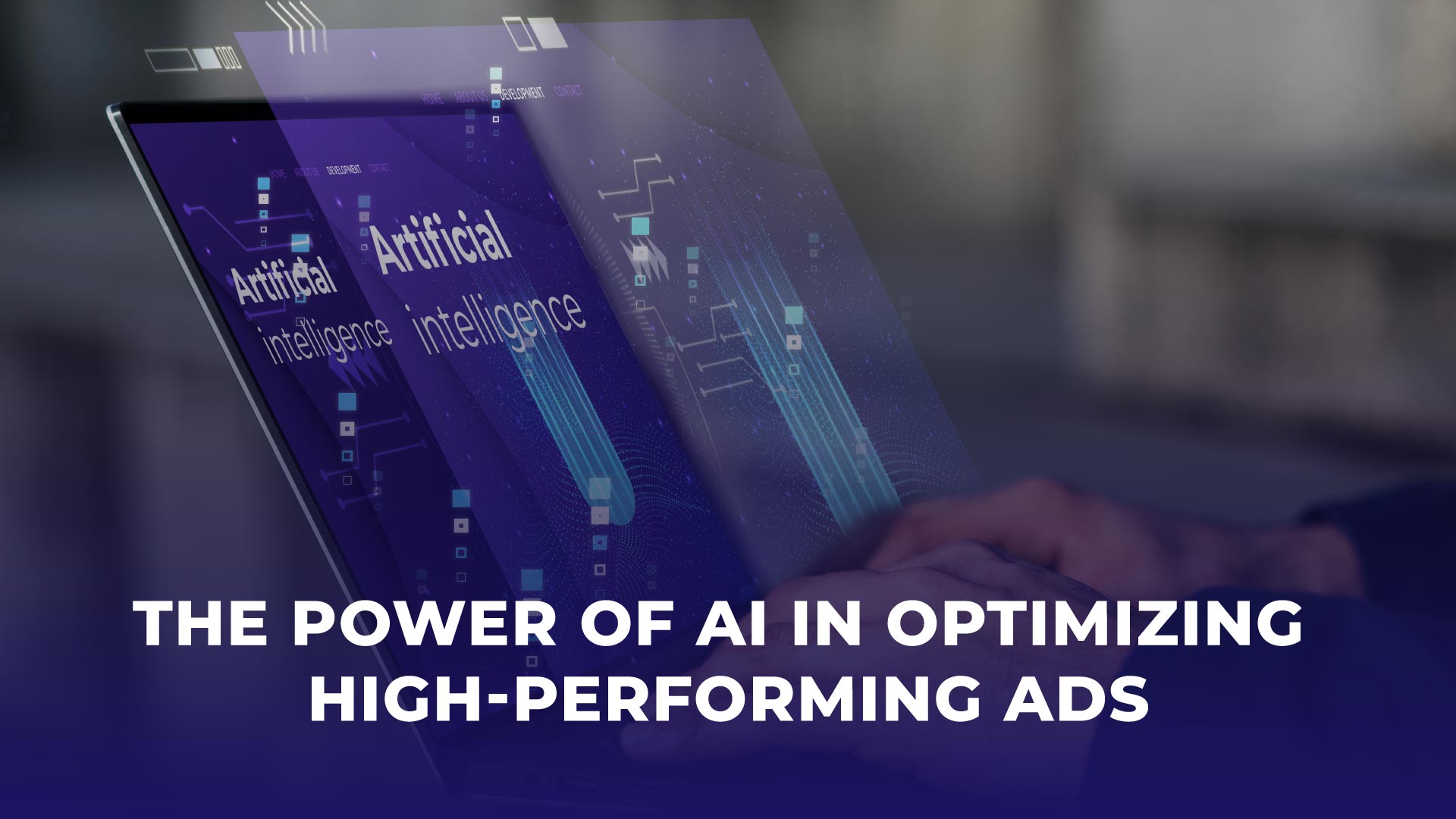The Power of AI in Optimizing High-Performing Ads
Today’s marketing is data-driven and demands the know-how of social platforms to succeed in the industry. Thanks to companies like Google and Facebook, the advertising industry is more precise and accurate in reaching our customers. The flip side of this is the increased competition and the advertisement-saturated environment.
Quick Links
With AI, marketers can improve the effectiveness and relevance of advertising campaigns, streamline the process, and stay ahead of the competition.
This article explores how marketers can leverage AI to enhance their marketing campaigns and effectively reach their prospects.
AI in Advertising: How does it Work?
Understanding the role of AI in advertising is crucial for success in the evolving advertising landscape. With the advent of the internet and programmatic advertising, marketers can now connect with consumers across various digital platforms and leverage a plethora of demographic and behavioral data points for targeted campaigns. The ability to test numerous ad variations further enhances campaign optimization.
Despite our proficiency in strategy and creativity, exemplified in the golden age of Mad Men advertising, where innovative ideas and impactful slogans drove success, the increasing complexity poses challenges for human management. Analyzing vast amounts of data swiftly and effectively becomes difficult, especially when dealing with numerous ad variations, targeting parameters, and budgets.
Enter artificial intelligence, offering capabilities beyond human capacity. Progressive companies are employing AI to optimize advertising budgets across channels and target specific audiences. AI can automatically adjust budgets to meet key performance indicators (KPIs) and uncover new customer opportunities within the data deluge. Through advanced data analysis, it creates comprehensive audience profiles, providing a deep understanding of target consumers.
AI’s role extends beyond budget allocation; it excels in ad creation. It can automatically generate compelling ad text and design visually appealing ads. With hyper-personalization, AI tailors messages and imagery for each consumer, enabling precise advertising targeting. In essence, AI transforms advertising by enhancing efficiency, precision, and creativity in a landscape where human capabilities face limitations.
Also Read : Why This AI-powered Coca Cola Ad Is A Marketing Masterpiece
Role of Machine Learning, Deep Learning, and Natural Language Processing in Advertisement
In the advertising realm, AI leverages various groundbreaking technologies, with three prominent ones being machine learning, deep learning, and natural language processing.
Machine learning, an AI subset, empowers systems to discern intricate patterns and make intelligent decisions by analyzing extensive datasets. Advertising enhances campaign optimization through the analysis of consumer behaviors, trend identification, and real-time parameter adjustments for optimal outcomes.
Deep learning, an advanced facet of machine learning inspired by artificial neural networks mimicking human brain functions, excels in processing unstructured data like images, videos, and sounds. In advertising, deep learning contributes to crafting visually captivating ads and gauging consumer emotions for tailoring messages accordingly.
Natural language processing (NLP), another AI branch, is dedicated to comprehending and manipulating human language. In advertising, NLP analyzes consumer feedback on social media, forums, and online reviews to grasp preferences, needs, and opinions. This analysis empowers advertisers to create more pertinent advertising messages and establish authentic communication with their target audience.
These AI forms are reshaping advertising by providing unparalleled analytical, creative, and understanding capabilities. Advertisers leverage machine learning, deep learning, and natural language processing to optimize campaigns, develop impactful ads, and gain insights into audience expectations. The future of advertising undoubtedly hinges on these technological strides, ushering in new possibilities and unparalleled opportunities for advertisers navigating an ever-evolving landscape.
How is AI Optimizing Advertising Campaigns?
AI plays a crucial role in optimizing advertising campaigns through various functionalities:
Audience Segmentation
AI leverages advanced algorithms to analyze extensive consumer data, including preferences, interests, and buying habits. This thorough analysis enables precise audience segmentation, allowing advertisers to tailor their campaigns for specific groups. Accurate segmentation ensures targeted and relevant ads, maximizing efficiency and delivering impactful results.
Performance Prediction
Ad performance prediction is vital for optimal results. AI enables real-time analysis of large datasets, providing valuable insights into trends and prospects. These predictions empower advertisers to adapt delivery strategies, targeting, and messaging to enhance campaign performance. By harnessing AI’s predictive capabilities, informed decisions can be made to allocate resources effectively across promising channels and audiences.
Content Personalization
Personalized content is essential for creating a meaningful impact. AI utilizes behavioral data and past interactions to analyze target audiences, allowing advertisers to deliver a personalized advertising experience. Tailoring ads based on individual interests, needs, and preferences enhances engagement and boosts conversion rates. AI-driven content personalization ensures that each consumer feels understood and valued, contributing to a unique and memorable advertising experience.
The Challenges of Using AI in Advertising
While AI brings powerful advantages to advertising, it is crucial to acknowledge its inherent challenges.
Protection of Privacy
The utilization of AI in advertising involves the collection and utilization of significant amounts of personal data for targeted consumer outreach. This raises legitimate concerns regarding privacy and compliance with data protection regulations, such as the General Data Protection Regulation (GDPR) in Europe. Advertisers must be cognizant of these potential risks and take proactive measures to safeguard their customers’ data. Despite potential constraints, GDPR should be viewed as a necessary boundary to ensure consumer data protection.
Bias in Data
A notable challenge in AI-based advertising is the susceptibility to bias in the data used to train algorithms. If the training data itself carries biases, it can result in discriminatory or unjust decisions by the AI system. Therefore, it is imperative to ensure that data collection is conducted neutrally, objectively, and comprehensively. Rigorous protocols for data collection, avoidance of systemic biases, and ethical training methods are essential to mitigate the risk of perpetuating biases or inequalities present in the original data.
Reliance on Technology
While AI proves effective in achieving advertising objectives, there is a potential pitfall of overreliance on technology. Advertisers may inadvertently neglect the importance of human creativity, intuition, and subjective experience in crafting compelling ad campaigns. Striking a balance between AI and human input is crucial to ensuring the holistic success of advertising efforts.
The Bottom Line
The integration of AI into advertising represents a transformative force, offering unparalleled opportunities to refine targeting, predict performance, and personalize content. However, advertisers must tread carefully, navigating the challenges in this technological evolution.
While AI provides a powerful toolkit, a cautious approach is required. Balancing technological prowess with human creativity remains pivotal. Overreliance on AI should not overshadow the unique insights, intuition, and subjective understanding that human creators bring to the table.
The bottom line is the journey into AI-driven advertising is a promising one, marked by innovation and efficiency. By adopting ethical practices, addressing privacy concerns, and integrating AI as a complement to human ingenuity, advertisers can unlock the full potential of this technology while ensuring a responsible and effective advertising future.
Author’s Bio:
With Ciente, business leaders stay abreast of tech news and market insights that help them level up now,
Technology spending is increasing, but so is buyer’s remorse. We are here to change that. Founded on truth, accuracy, and tech prowess, Ciente is your go-to periodical for effective decision-making.
Our comprehensive editorial coverage, market analysis, and tech insights empower you to make smarter decisions to fuel growth and innovation across your enterprise.
Let us help you navigate the rapidly evolving world of technology and turn it to your advantage.
How to Manage Multiple Reddit Accounts
Reddit is more than just a social platform; with 82% of Zoomers trusting the platform’s review,…
0 Comments3 Minutes
6 Ways to Fund Your Digital Marketing Business
Digital marketing is one of the most lucrative online careers, but just like any industry, there…
0 Comments7 Minutes
Web Application Development: Trends and Best Practices 2024
Web applications are the solutions that are at the core of today’s enterprises. The fast pace of…
0 Comments8 Minutes
How Insights are Reshaping Marketing Strategies
In today's competitive marketplace, data-driven insights have emerged as one of the strongest…
0 Comments5 Minutes
Top Benefits of Having a Skilled Webflow Team
With a website today being the virtual version of a shop within the digital world, in reality, it…
0 Comments9 Minutes
The Impact of AI on SEO in 2024 and Best Practices
In 2024, AI is not just another trend in SEO; it’s a transformative tool that's reshaping digital…
0 Comments4 Minutes
Boost Your Search Rankings with These Free Keyword Tools
Introduction In these days’s competitive virtual panorama, SEO plays an essential role in riding…
0 Comments10 Minutes
How Web Accessibility Impacts SEO: Optimizing for Screen Readers and Beyond – An Overview
The term web accessibility refers to providing websites for all users to access, no matter the…
0 Comments14 Minutes








